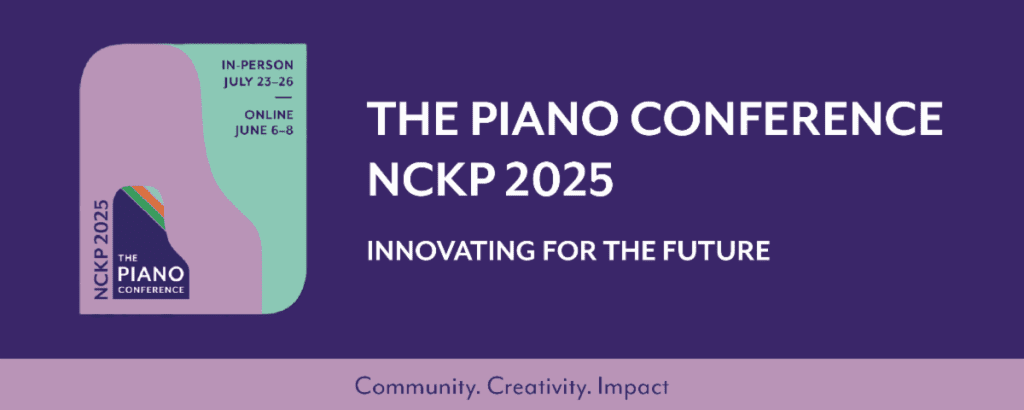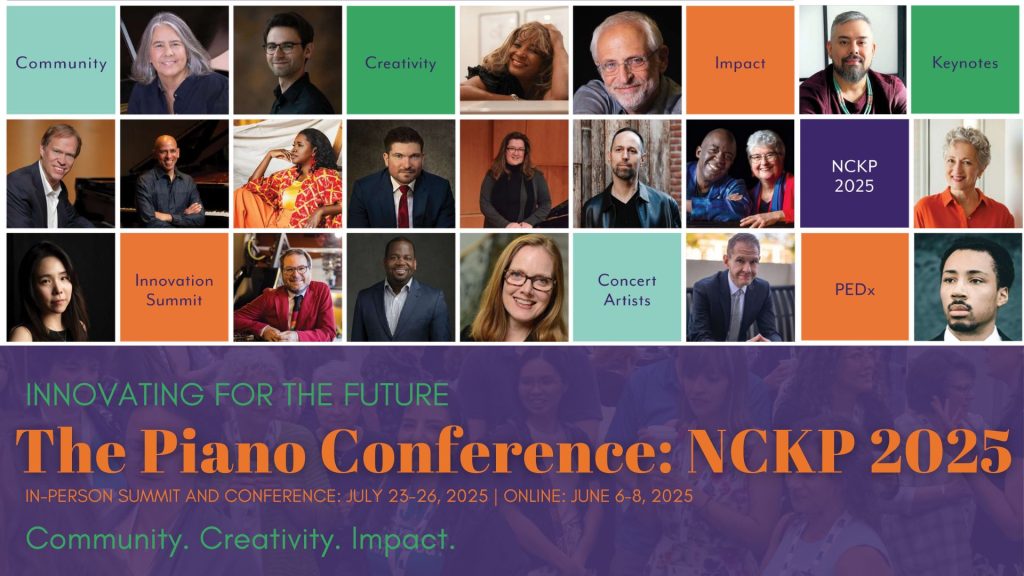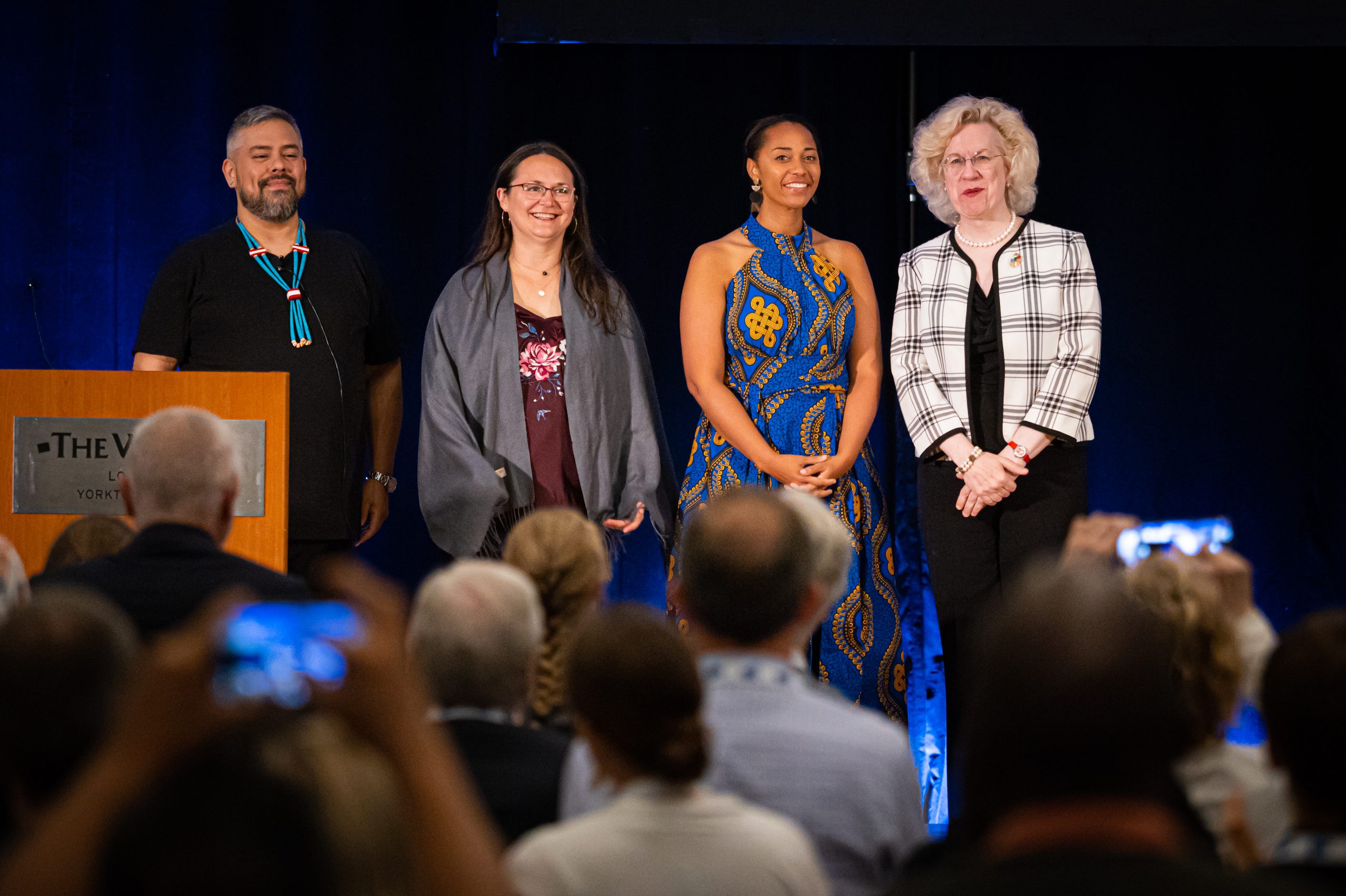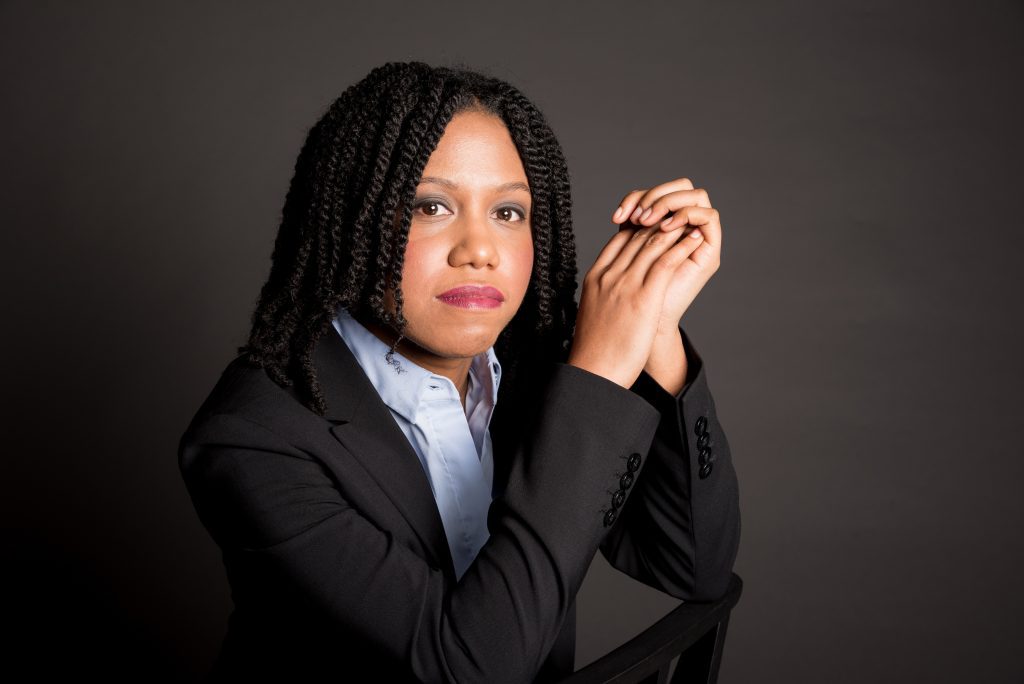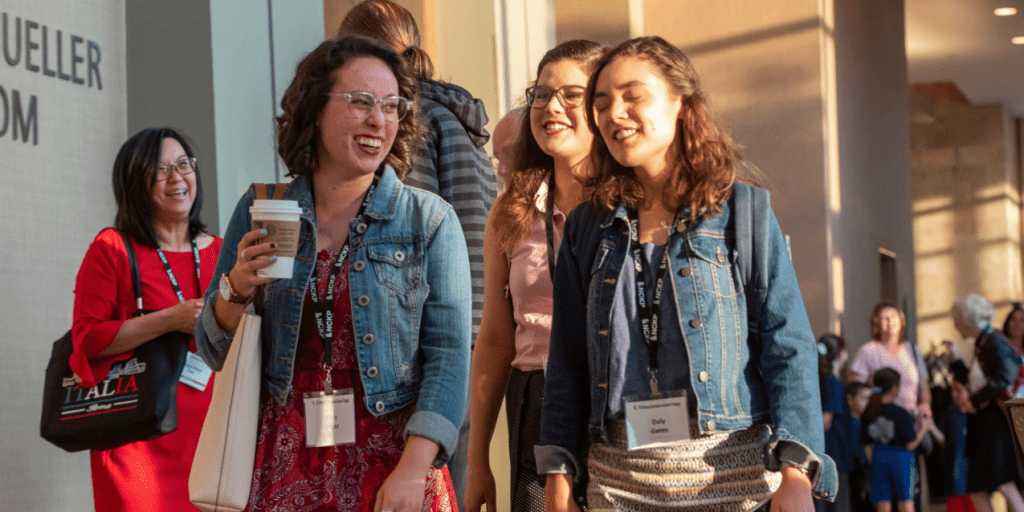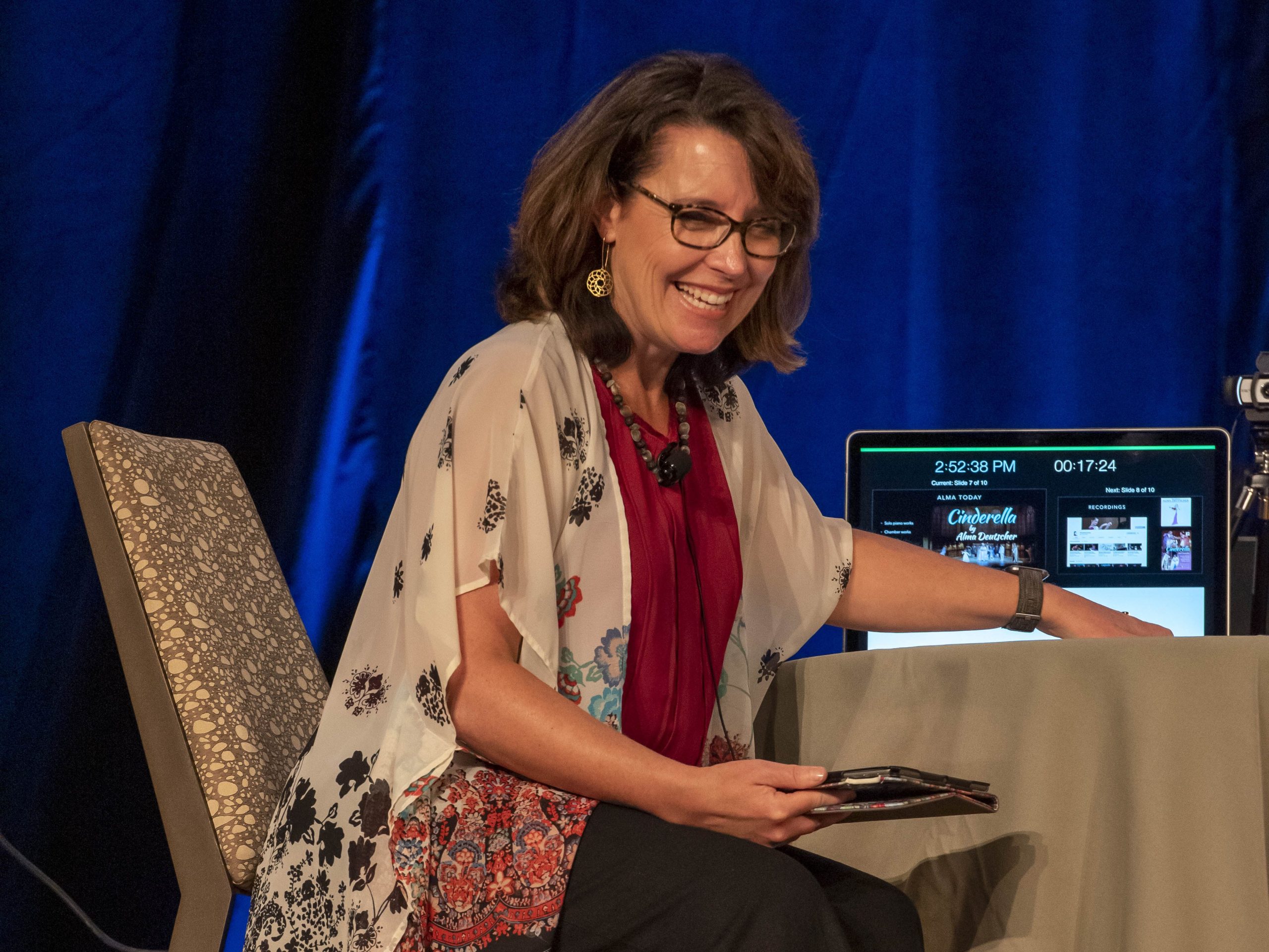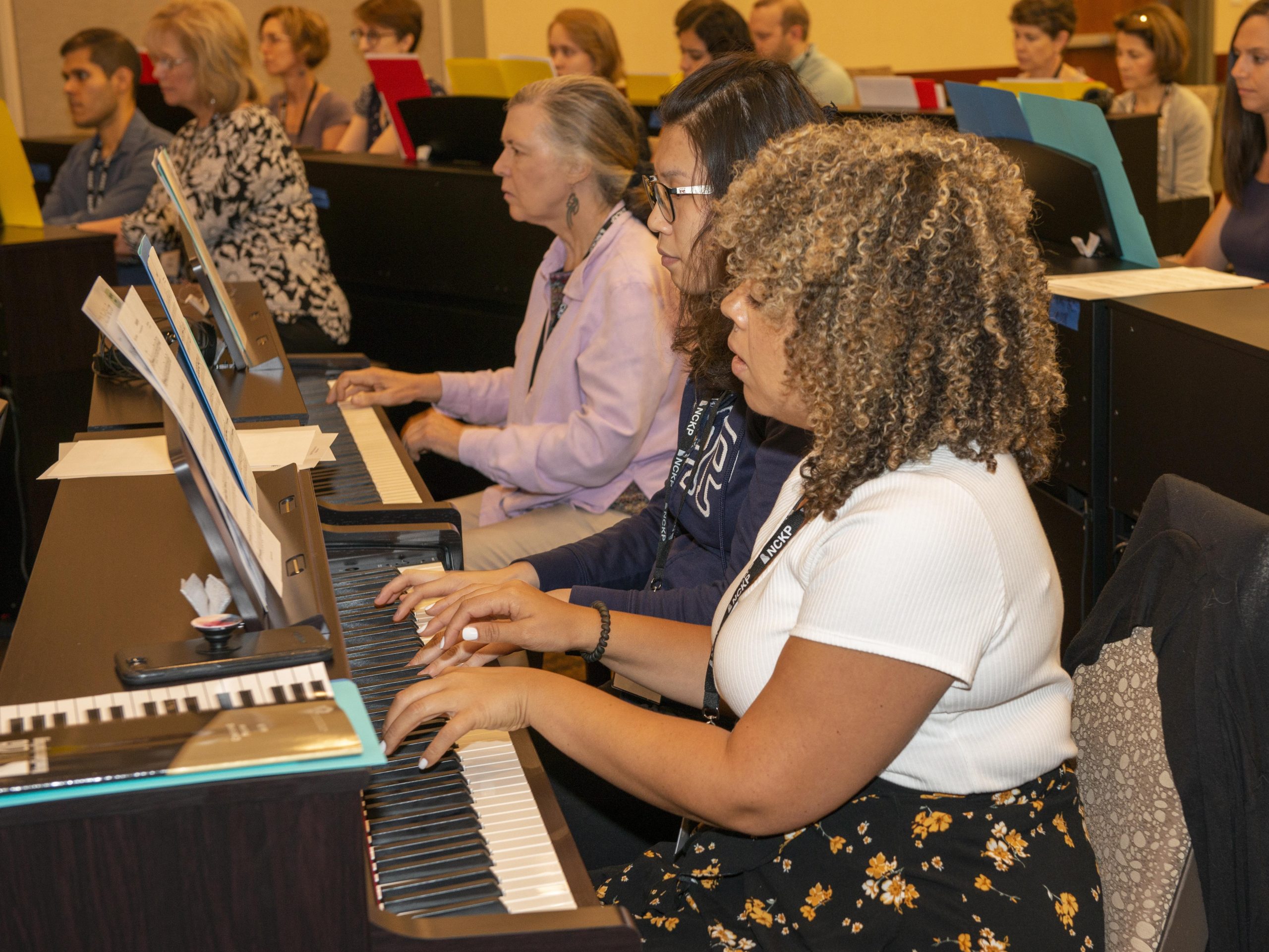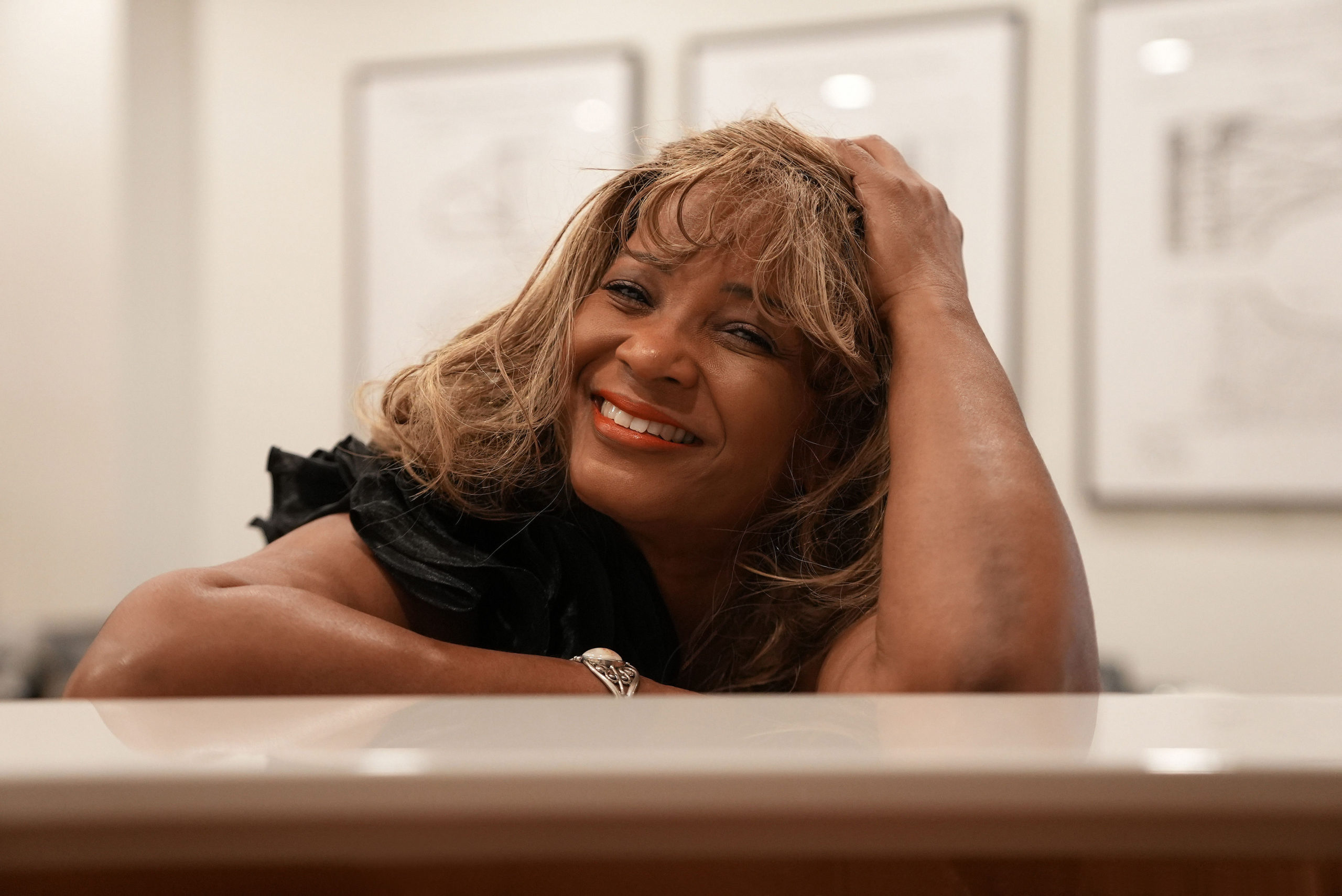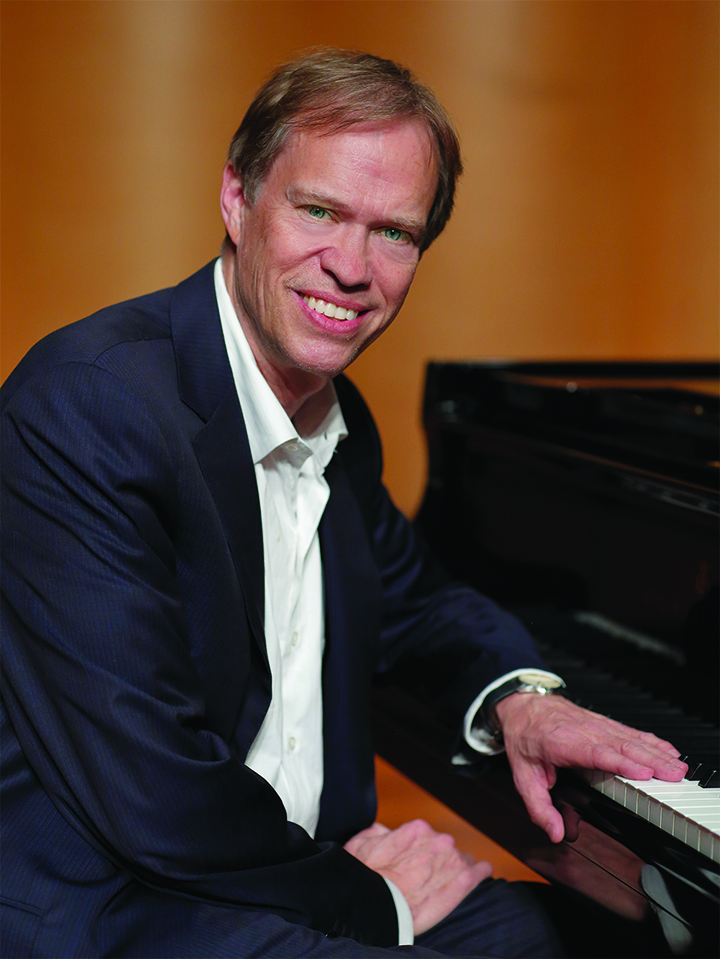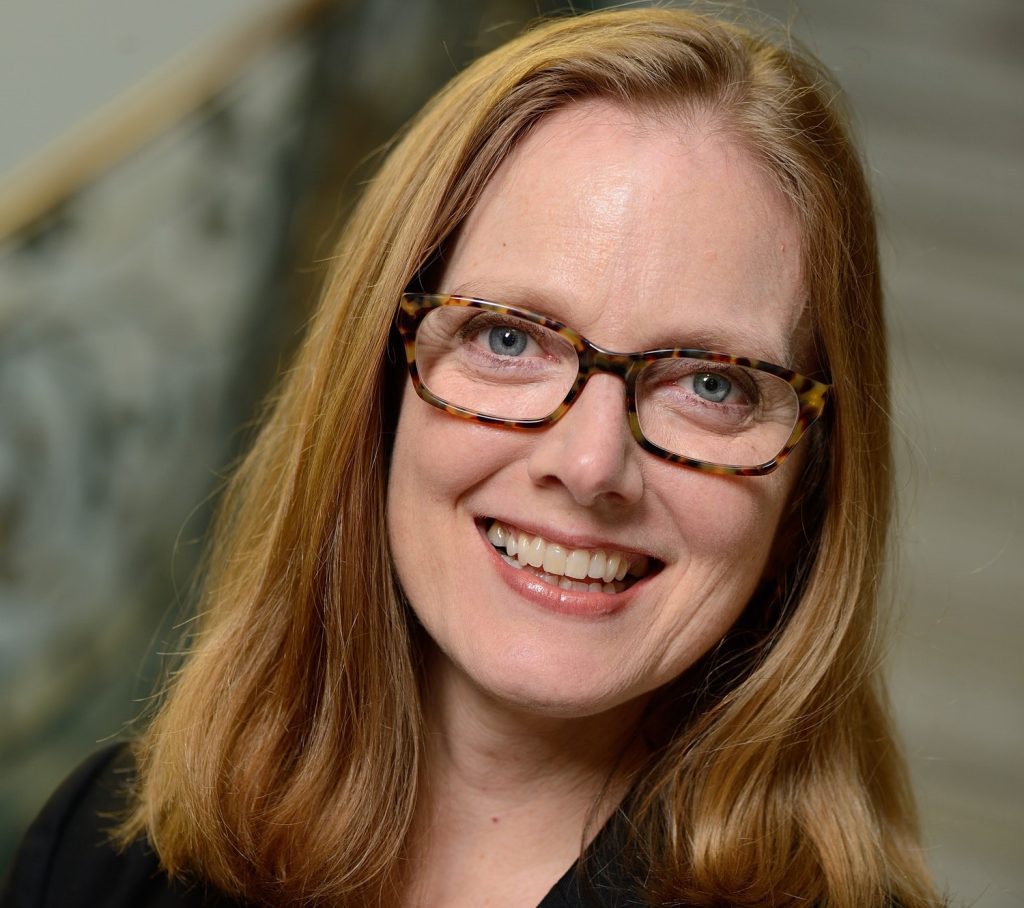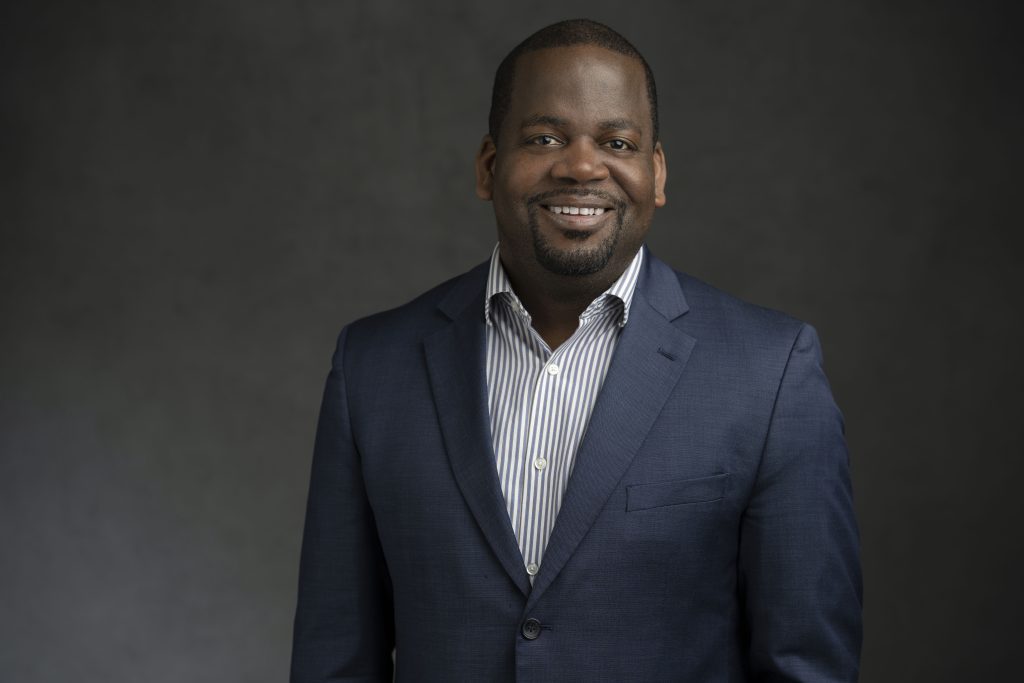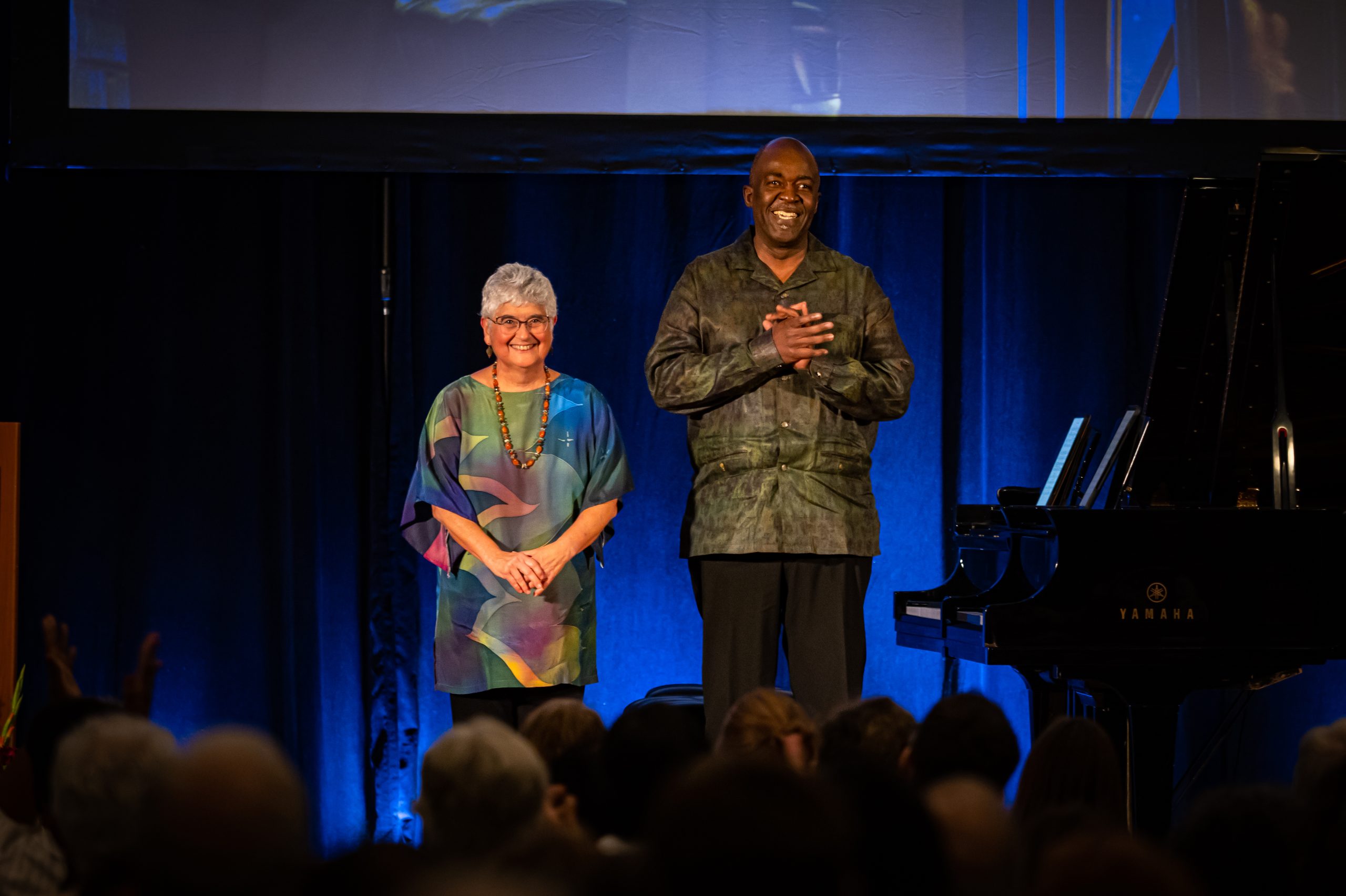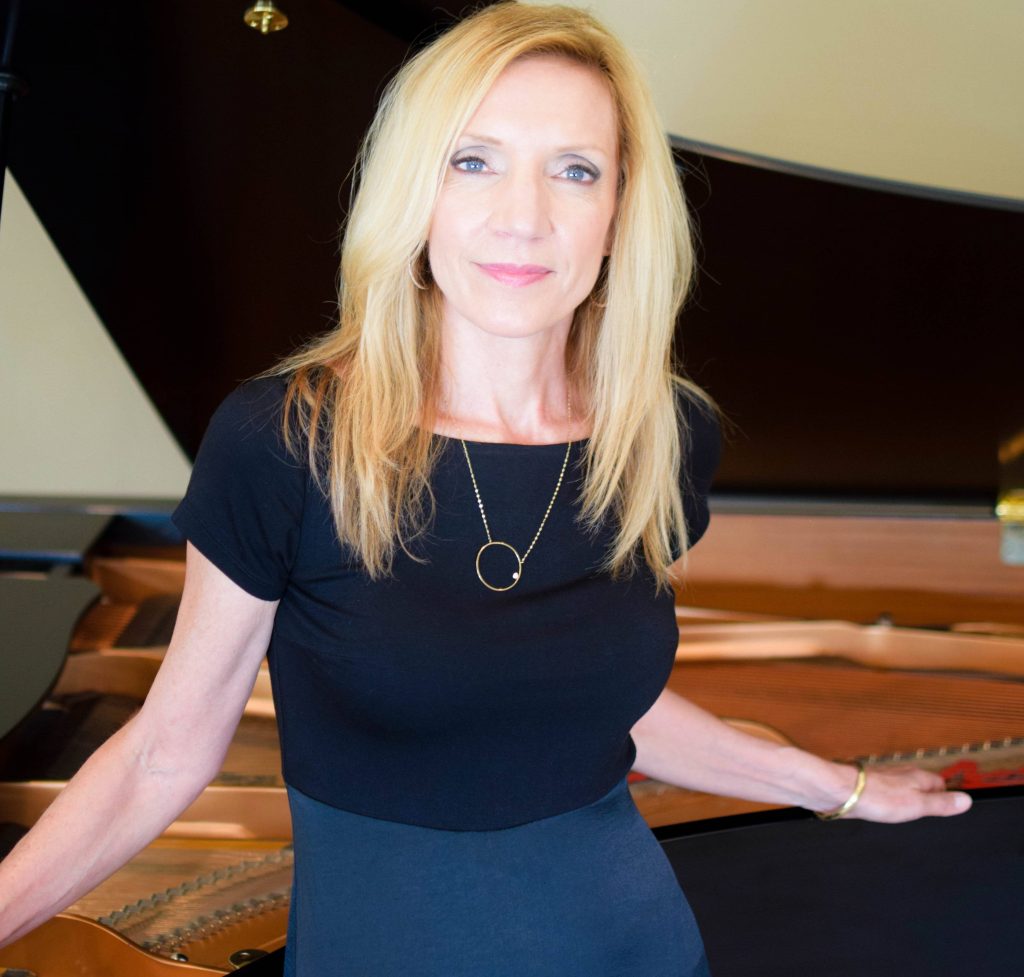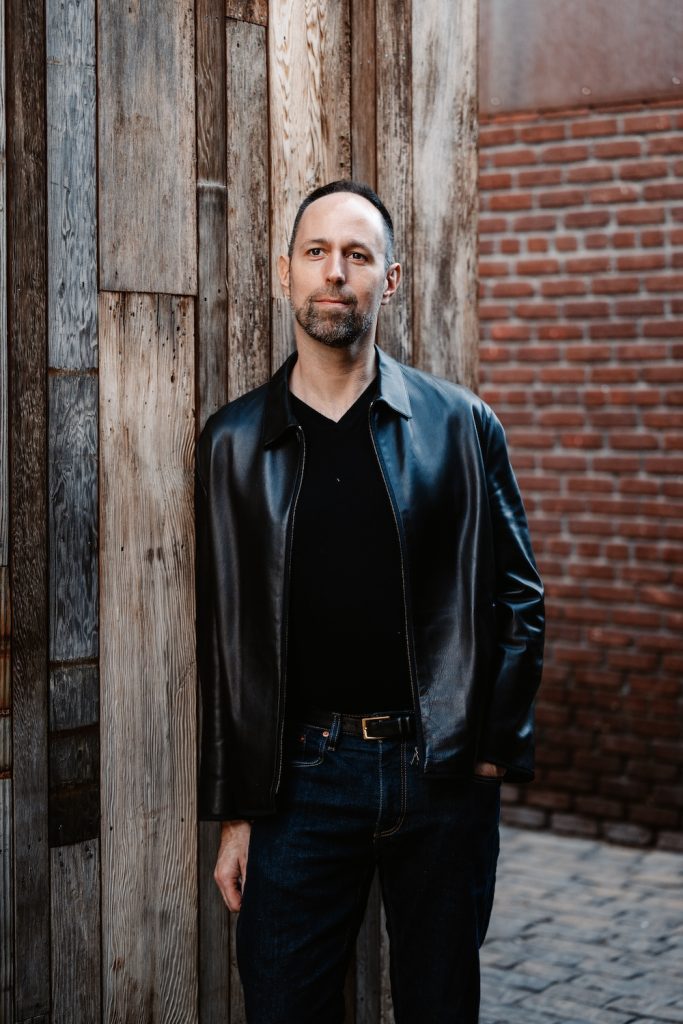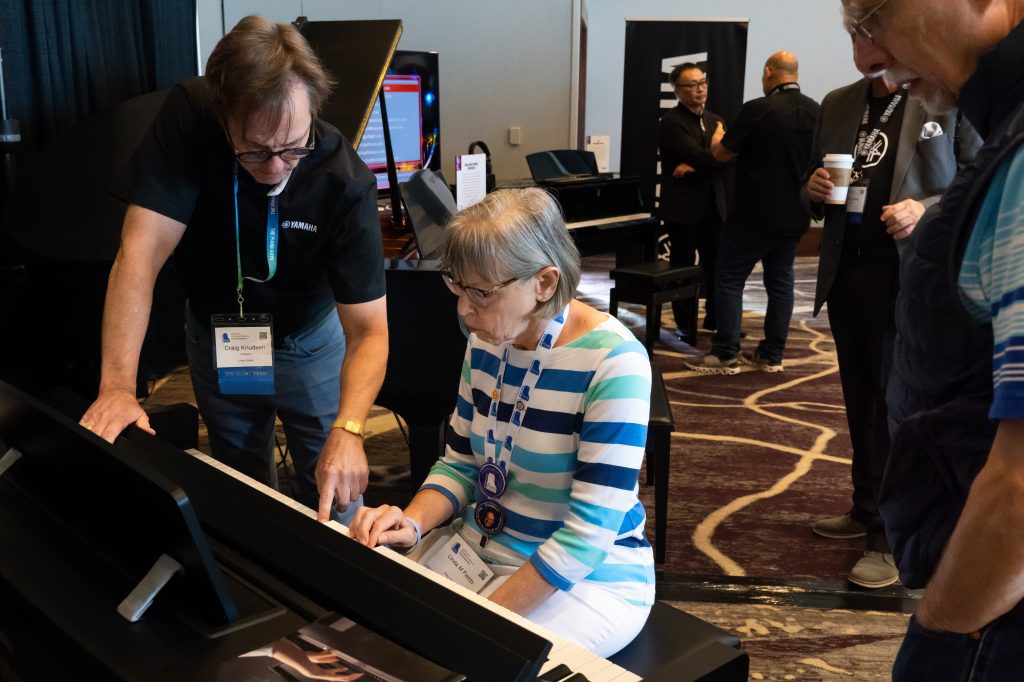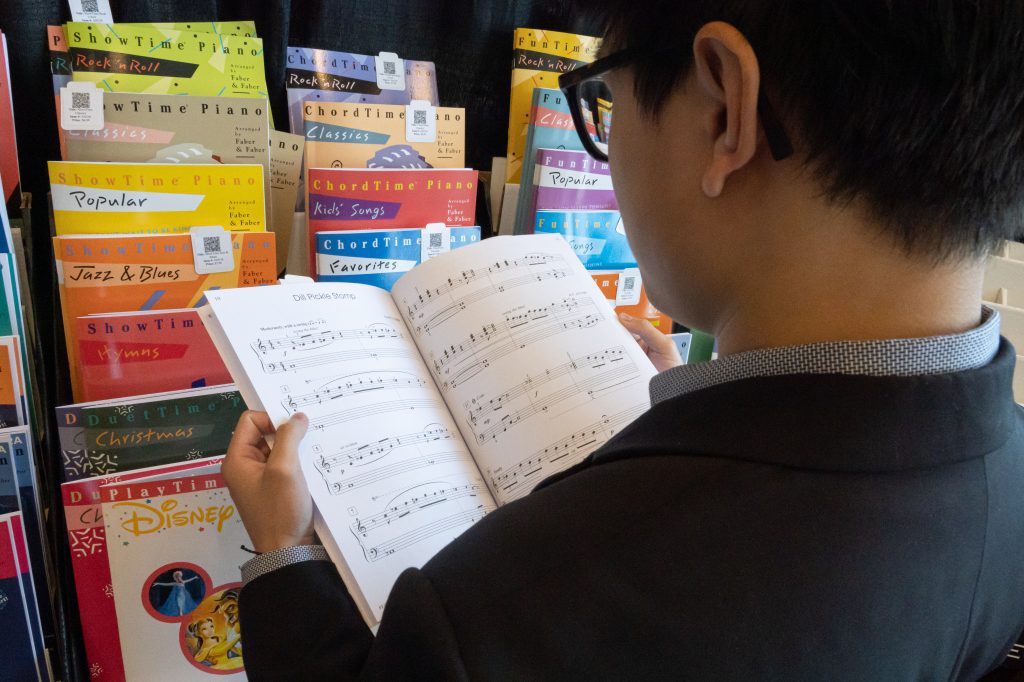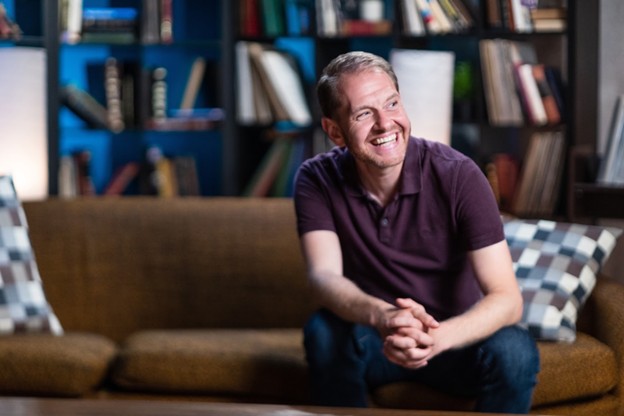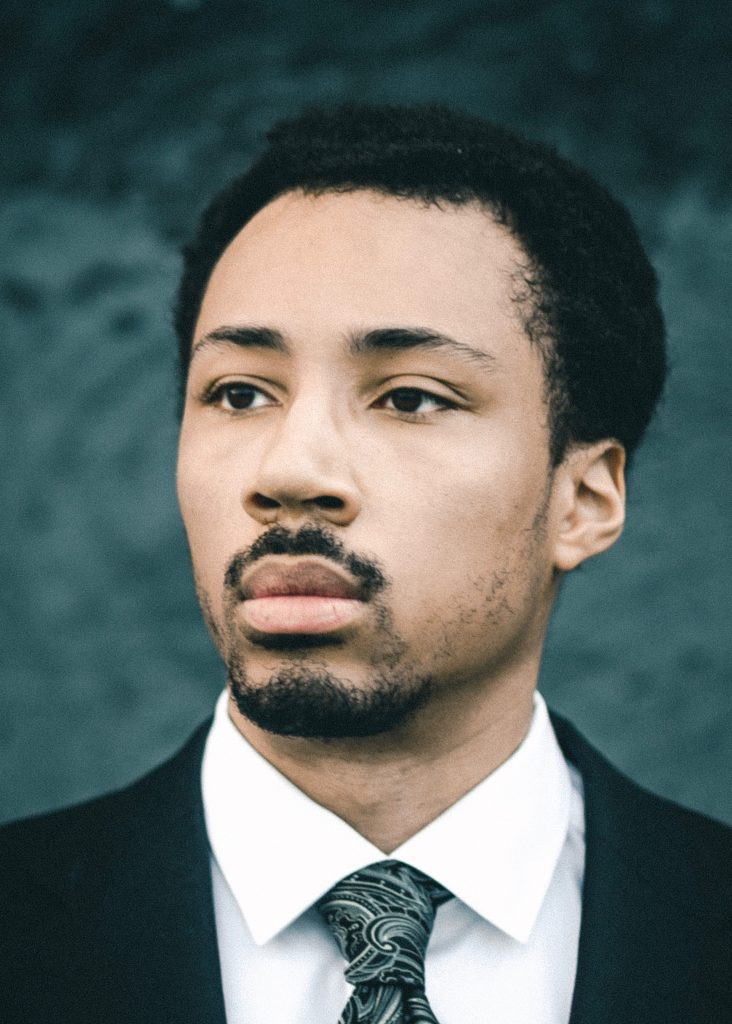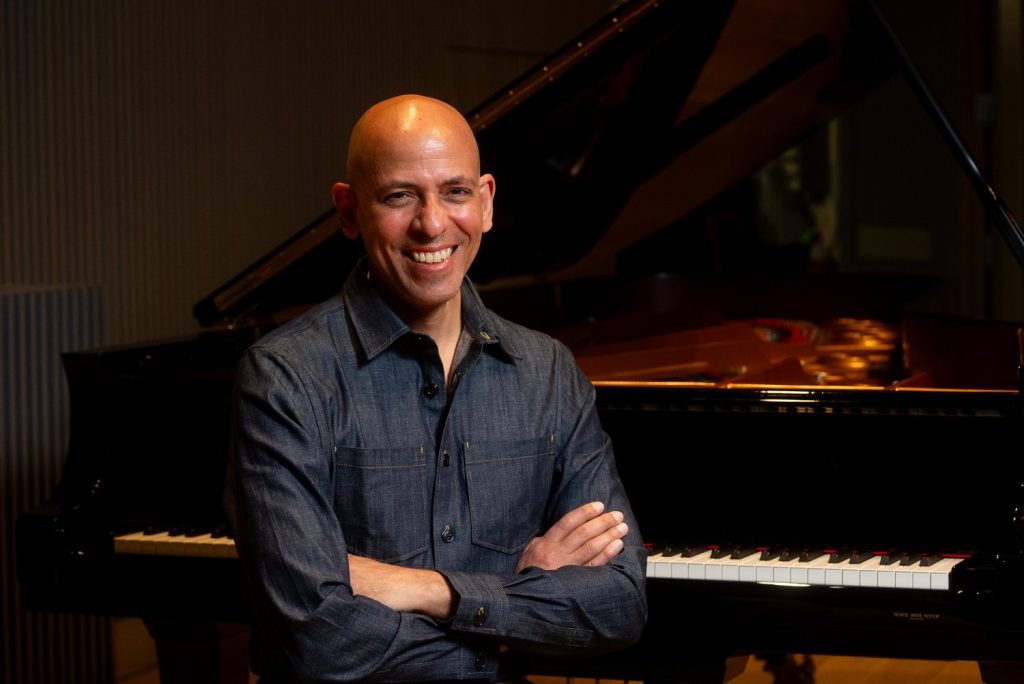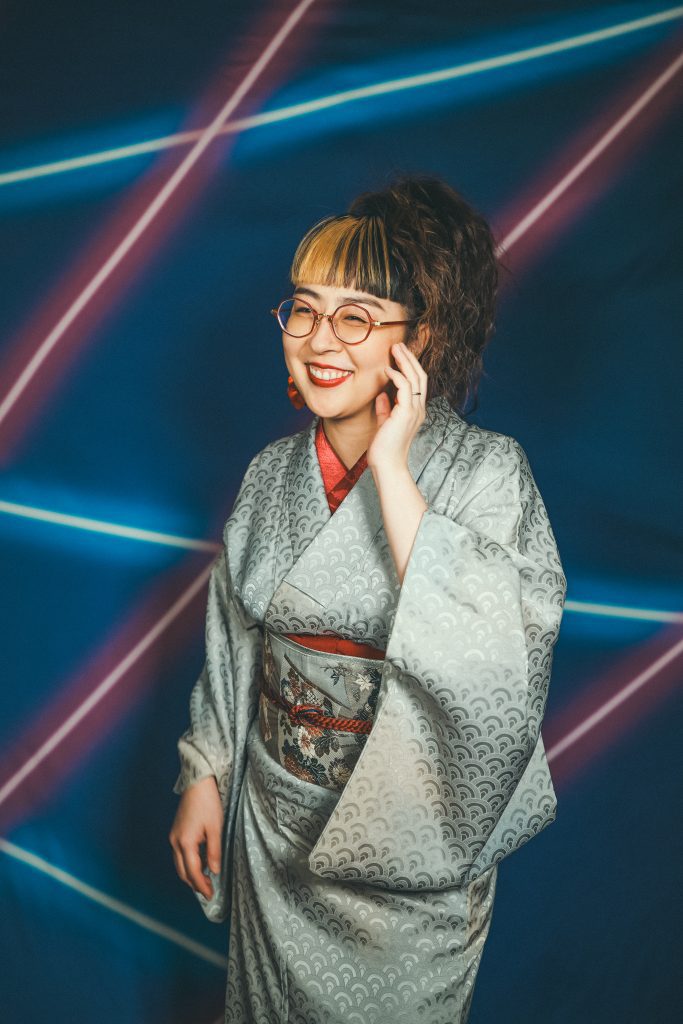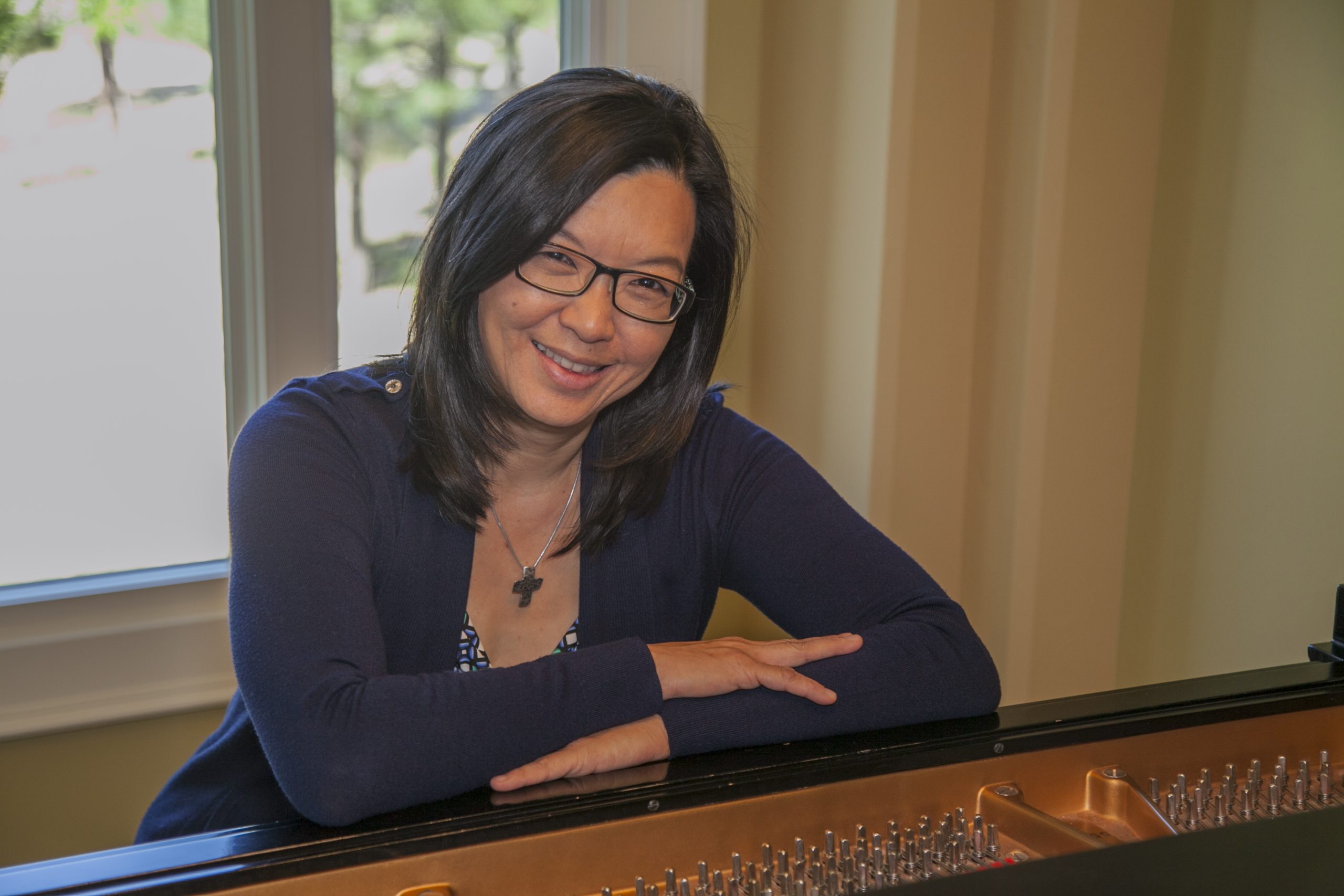On Wednesday, July 23rd from 8:00-10:00pm, The Piano Conference: NCKP 2025 will present the 2025 Celebration Concert featuring pianists Rochelle Sennet, Connor Chee, Alexa Stier, Carol Leone, Derek Hartman, Artina McCain, Spencer Myer, Susanna Garcia, and William Chapman Nyaho. In celebration, we are sharing this excerpt from Artina McCain’s appearance on the Piano Inspires Podcast. Interested in hearing more from McCain? Register for The Piano Conference: NCKP 2025 today by clicking here.

Andrea McAlister: One thing I love so much—and I ran out and got a copy as soon as it was available—is your publication with the 24 African American folk tunes. Just beautiful music.
Artina McCain: Oh, thank you.
Andrea McAlister: I think giving this gift to young students is—it’s tremendous. I just, I love the whole collection. I’ve given them out to my students. They’re all excited to play them. What does it mean to you to be able to create that for students? How did you come across this project to begin with?
Artina McCain: Oh, well, interestingly enough, I’m glad you asked that, because nobody’s ever asked me that. Way back in the day, when Piano Magazine was Clavier Companion, I was doing some reviews for some of the books that would come out for Hal Leonard, like at the beginning of my career. I actually ran into a woman who was working on the editorial staff at the time, and she said, “Hey, you want to do some reviews?” Like sure. That had to be at least a seven to eight-year difference between the time that Hal Leonard approached me. So basically, they had seen my review all those years ago, and she calls me and says, “You know, you wrote a really great review for us.” “Like eight years ago!” “You want to write a book?” “What?” That’s exactly how it happened. Wow, you never know who’s watching your work.
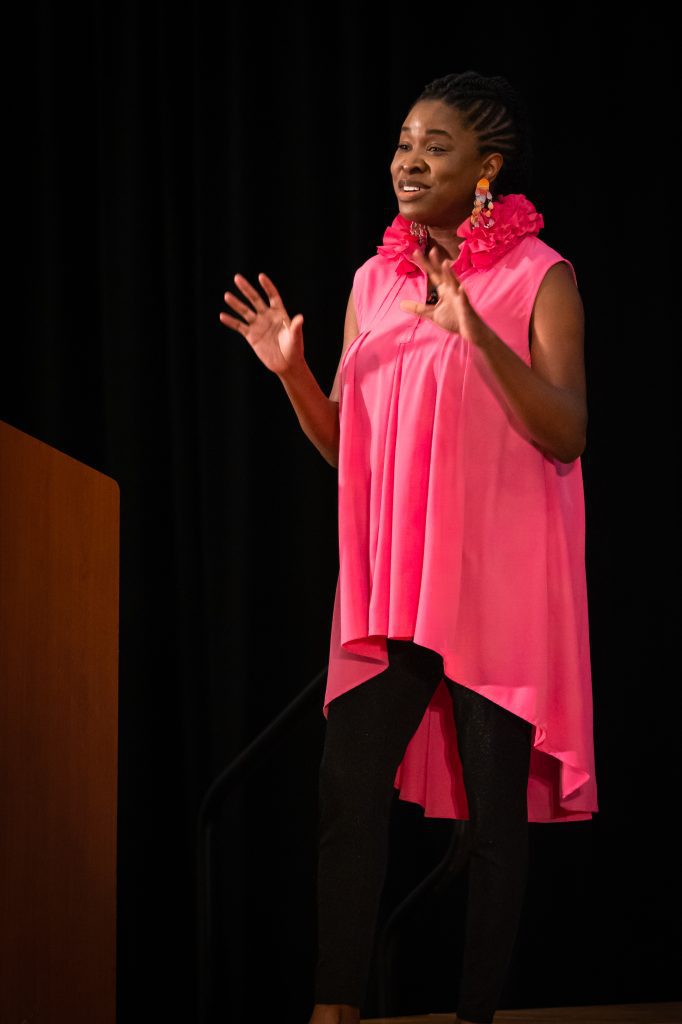
Andrea McAlister: You never know. And that’s where perseverance also pays because you never know what’s going to come around.
Artina McCain: Right. So you know, they in the meantime have created this fantastic folk song series of books that represent people from all over the world. They said, “Oh, we want to do the African American version of this. Do you want to do it?” “No! [Laughs] I never wrote a book in my life! Are you sure that you are calling the right person?” [Laughs] So they convinced me and I’m so glad that I did because you know, those resources weren’t available for me when I was a kid. You know, maybe I could have been a singer if my mom could have found some books to encourage me. So no, it means the world. And again, I’m glad that I kind of stepped out on faith to do it because it wasn’t something that I even dreamed that I would do, or that I dreamed would come out of doing a book review, you know, like eight years prior.
Andrea McAlister: Right? You just never know who’s watching and reading and appreciating the work that you are doing.
Artina McCain: Absolutely.
Andrea McAlister: I think through this book, you have created so many people who are appreciative that you’ve done the work. That you didn’t say no.
Artina McCain: Right?
Andrea McAlister: Even though you didn’t say no initially. But they convinced you that you really should do this. Because just being able to experience things other than Clementi—I mean, I know those are all important foundational—you know, you learn a lot of foundational skills through the standard repertoire. But this is such important music to pass along to kids who are growing up now and getting excited about playing the piano, and these pieces are so exciting to play.
Artina McCain: Yeah, and familiar hopefully to many too.
If you enjoyed this excerpt from Piano Inspires Podcast’s latest episode, listen to the entire episode with Artina McCain on Apple Podcasts, Spotify, YouTube, or our website!
MORE ON ARTINA MCCAIN
- WEBINAR: Introduction to the Frances Clark Center’s New Online Course: Piano Teaching through the Lens of Diversity, Equity, and Inclusion with Leah Claiborne, Susanna Garcia, and Artina McCain
- WEBINAR: Best Piano Pedagogy Practices through the Lens of Diversity, Equity, and Inclusion with Leah Claiborne and Artina McCain
- COURSE: Piano Teaching through the Lens of Diversity, Equity, and Inclusion
- COURSE: Unsung Heroes in Piano Pedagogy: 20 Pieces by Black Composers to Use in Your Studio Now
- FROM THE ARTIST BENCH: Coleridge-Taylor Perkinson: Scherzo and Toccata with Artina McCain
- MAGAZINE ARTICLE: Delivering Pianos to the University of Memphis Students by Artina McCain, Jonathan Tsay, and Casey Hilder
- MAGAZINE ARTICLE: Building Diversity in Your Music Career: Interview with Michelle Cann by Artina McCain
